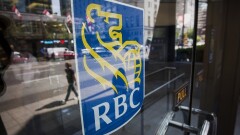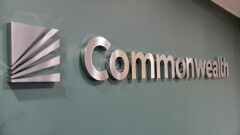Financial advisors guiding clients through what was the first sustained bear market in a decade are raising alarms about impending retirements and a dearth of time to talk to the customers.
At least 28% out of more than 4,000 employee and independent advisors told research and consulting firm J.D. Power that they don't have enough time to speak with clients due to the hours soaked up by "non-value-added tasks such as compliance and administrative duties," according to
The
[SCROLL DOWN TO SEE THE RANKINGS OF 15 MAJOR FIRMS]
Low scores among both employee and independent brokerages display how advisor satisfaction is "a general industry condition more than it's dramatically different in one channel than in another," according to recruiter
"When markets are volatile and it looks like the economy may be headed toward a recession, it's a lot less fun to be a financial advisor," Elzweig said in an interview. "It's draining, and these are the periods where advisors have to spend a lot of extra time with clients. It makes sense to me that advisors would feel in these kinds of volatile markets that they're stretched thin, that they don't have enough time to service clients."
Rising expectations among clients in the level and types of services, including a greater emphasis on planning than in the past, can exacerbate that sense of weariness, he added. Those trends, combined with massive drops in stock and bond values last year, may push some advisors into earlier retirements as well, according to Elzweig.
J.D. Power adjusted this year's version of the survey to align with other wealth studies using a different scale and weightings among a half dozen categories than in past research, according to the firm. "Many of the most important metrics" stayed the same, Head of Wealth and Lending Intelligence Craig Martin said in an email.
"The new scale method ('poor' to 'perfect') has been used in dozens of J.D. Power studies and consistently results in substantially lower scores when compared to the old scoring scales," Martin said. "This does not reflect a decline in performance in the industry but rather an adjustment of the scaling."
At an average age of 56 years old, a fifth of advisors told researchers that they expect to retire in five years or less, which highlights
The other takeaways about the dearth of available time for clients and looming retirements pose a warning for the brokerages, according to Martin.
"In difficult market conditions like the ones we've been experiencing for the past several years, great investment advisors set themselves apart by proactively addressing their clients' needs, delivering comprehensive guidance and communicating clearly and frequently about the issues that matter most to their clients," Martin said in a statement.
"Right now, many advisors are struggling to find the time to deliver the level of hands-on service they know is critical to growing their business," he continued. "They're spending more time on administrative and compliance-oriented tasks and, in many cases, they are starting to question whether their firm is committed to providing them with the support and resources they need to succeed."
For results from prior years, see our slideshows from
Note: The





















